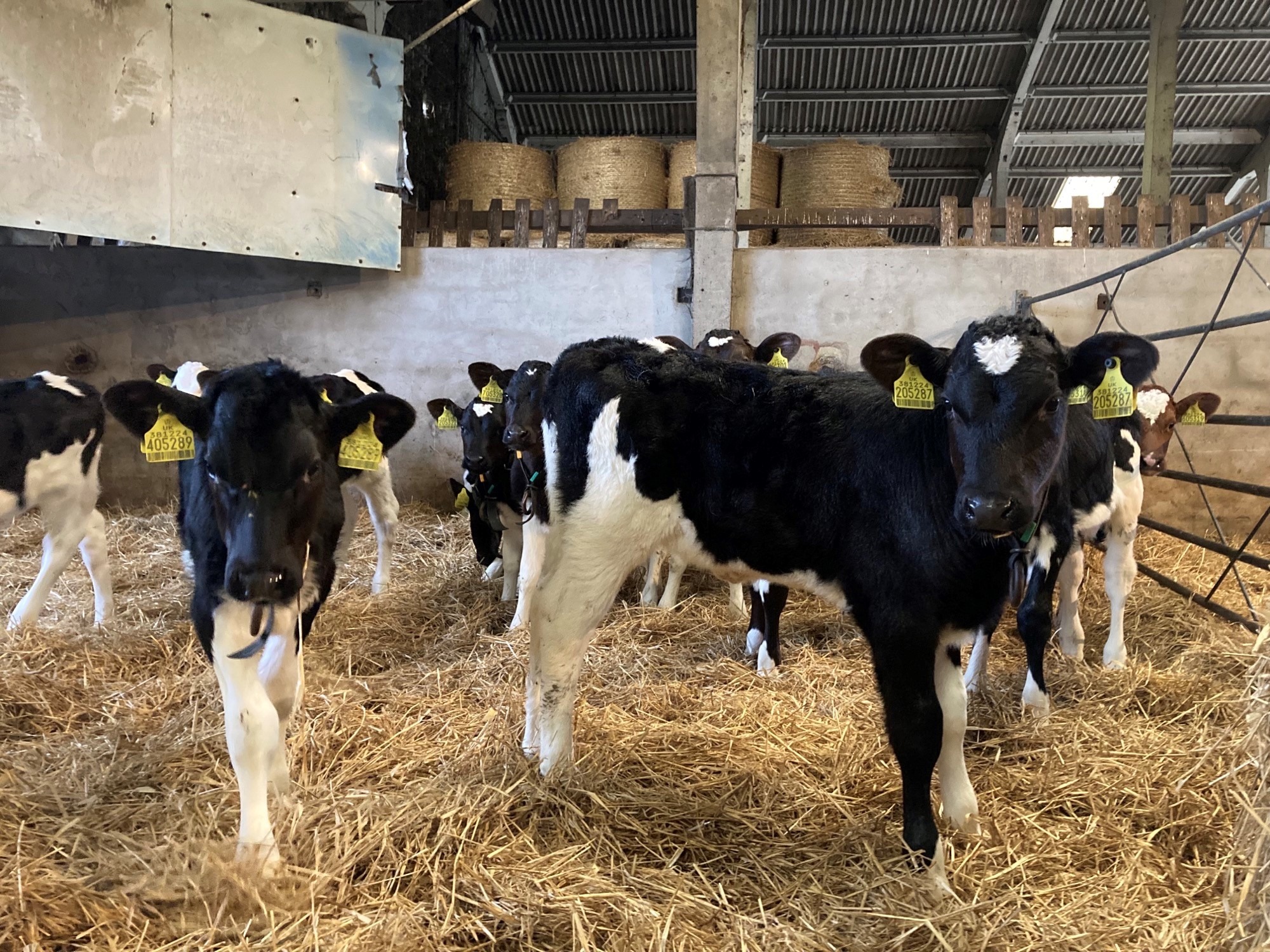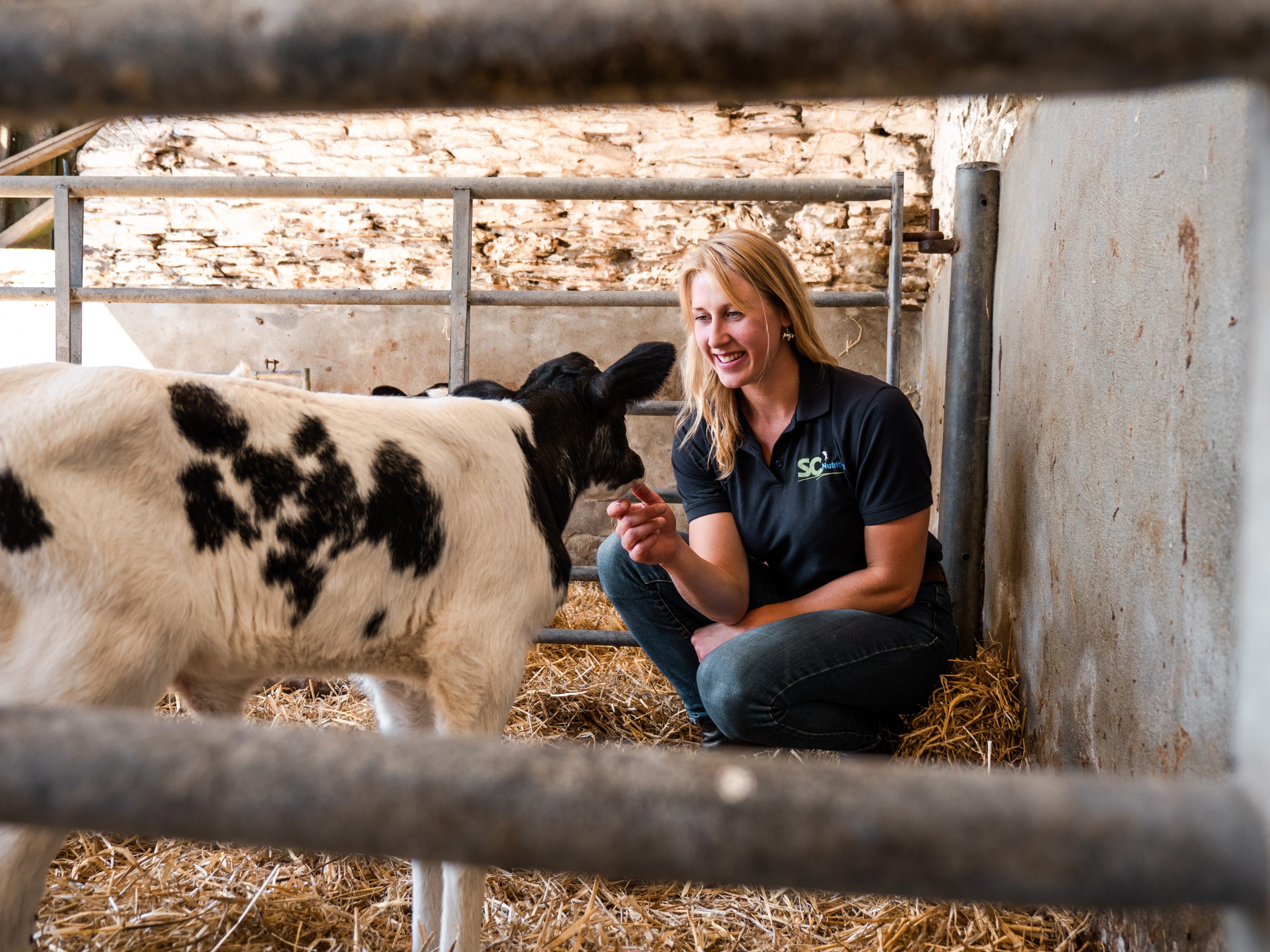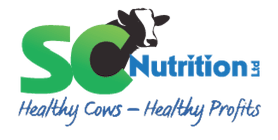

Starting calves right…
During the first two weeks of life, calves receive most of their nutrition from milk. Normally the choice is that of powder or whole milk with the type of milk fed determined by price, availability, and convenience. Calves are generally fed milk twice daily from a nipple bottle/bucket, or open bucket. When milk is fed to calves the oesophageal groove closes and milk bypasses the rumen and is shunted from the oesophagus into the abomasum or true stomach. The groove closes in response to nervous stimulation and is active in calves until about 12 weeks of age.
As a safeguard, in preventing the spread of Johne’s disease, colostrum or whole milk fed should be obtained from cows testing negative for Johne’s disease, or alternatively pasteurized using a batch pasteurizer heated to 65.5°C or for 30 minutes.
During early calf’s life, scours or diarrhoea can be a problem. Often caused by overfeeding of milk or by bacterial or viral infections, scouring calves can lose 10 to 12% of their body weight in water losses along with salts such as sodium bicarbonate, chlorine, and potassium. These imbalances must be corrected quickly using electrolytes, to avoid further serious health issues or death.
Why Calf Starter and Water Are Important for Rumen Development
At birth, the first three components of the stomach—the rumen, reticulum, and omasum have no part in digesting feeds for the baby animal. On eating calf starter and with drinking water, the rumen starts to develop.
Calf starter should be offered from day 1 of age and formulated to include very palatable ingredients whilst containing adequate protein, minerals, and vitamins. Table 1 lists the recommended nutrient content of a calf starter.
| Table 1. Nutrient composition for calf starters.* |
| 16-20% crude protein
0.70% calcium 0.45 % phosphorus 0.65 % potassium 10 ppm copper 40 ppm zinc 40 ppm manganese 0.10 ppm cobalt 0.30 ppm selenium 826 IU Vitamin A/Kg dry matter 123 IU VitaminD/Kg dry matter 6 IU Vitamin E/Kg dry matter |
| * Adapted from Nutrient Requirements for Dairy Cattle—2001 |
Early access to clean water increases starter intake and weight gain. Recent research shows, depriving calves of drinking water decreased starter intake by 31% and weight gain by 38% compared to calves provided free choice water. Water enters the rumen and along with high-quality calf starter, helps convert a calf from a simple-stomached animal to one with a functional rumen. In calves, milk is funnelled through the oesophageal groove to the true stomach, not the rumen. Thus, any water contained in milk will not provide water for the bacteria to grow in the calf’s rumen.
SCN Gold Range –To aid successful calf rearing we have designed a new additive for liquid milk and a new accompanying dry feed.
SC Gold Milk additive -SC Gold can be added to whole milk or milk powder to reduce disease incidence, improve growth rates and reduce days to first calving.
SC Calf Weaner Pellets- SC Calf Weaner contains S C N Gold and is formulated to improve the gut environment to give healthier calves with better immunity, higher growth rate and reduced days to first calving.
